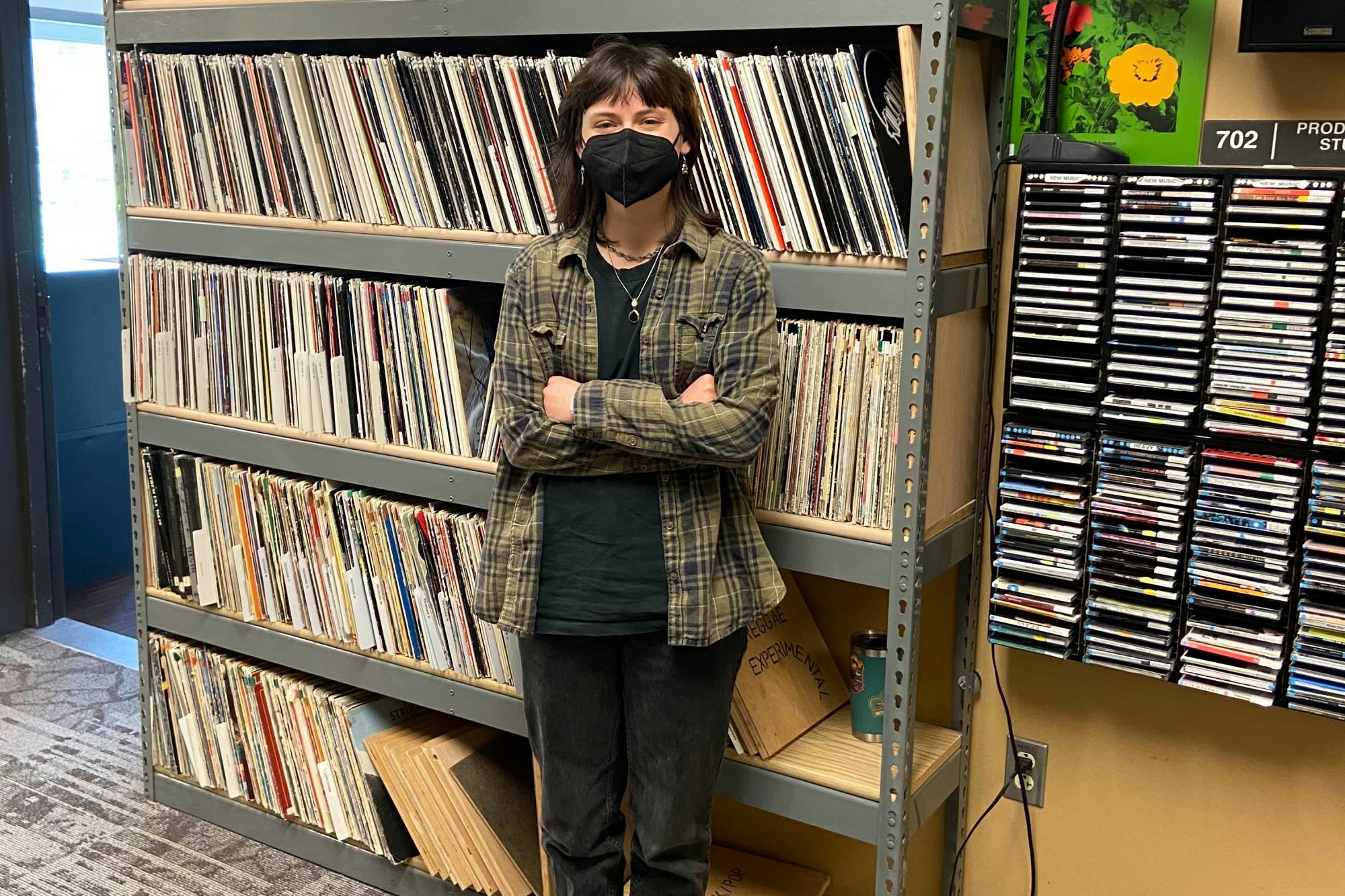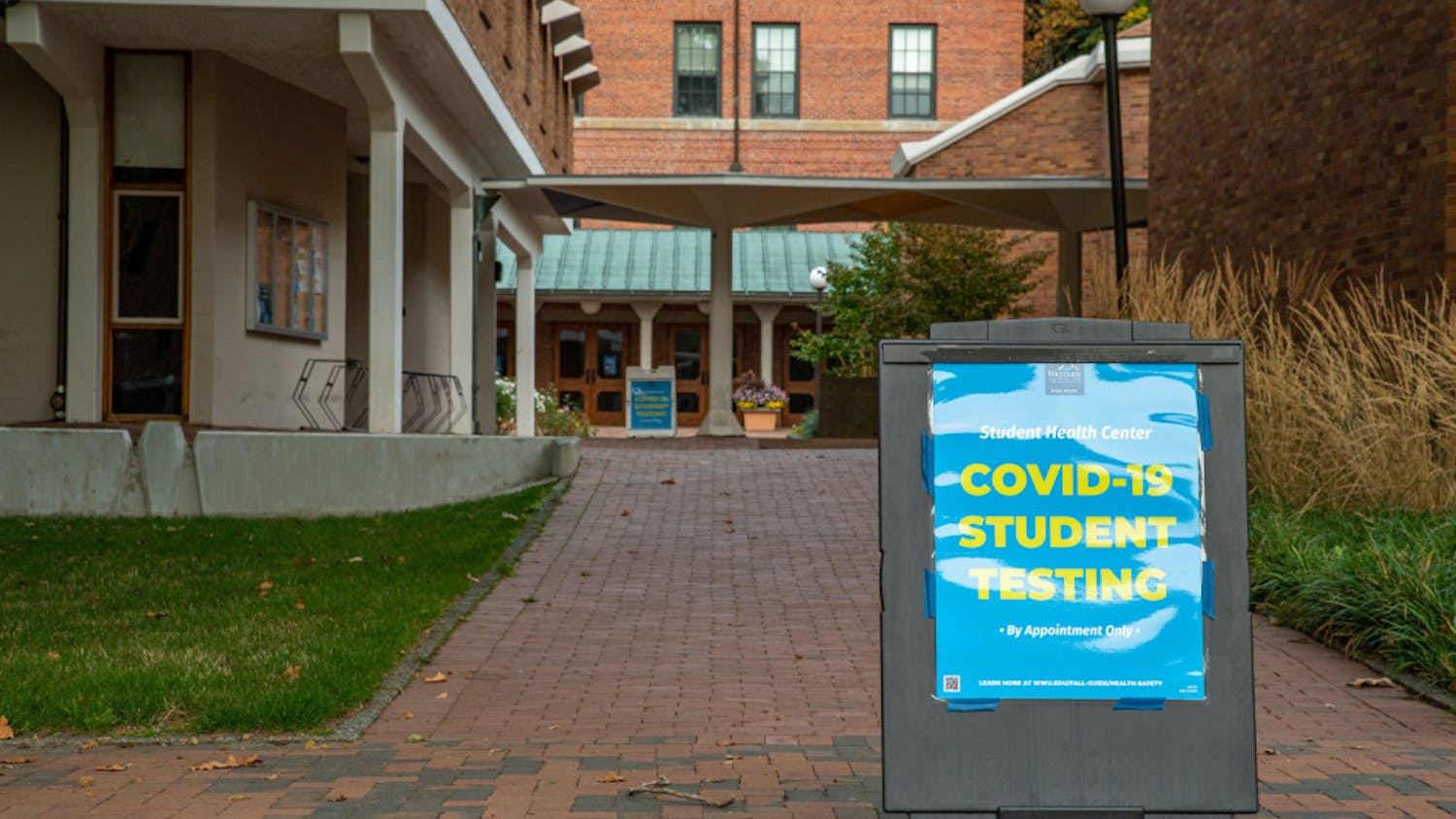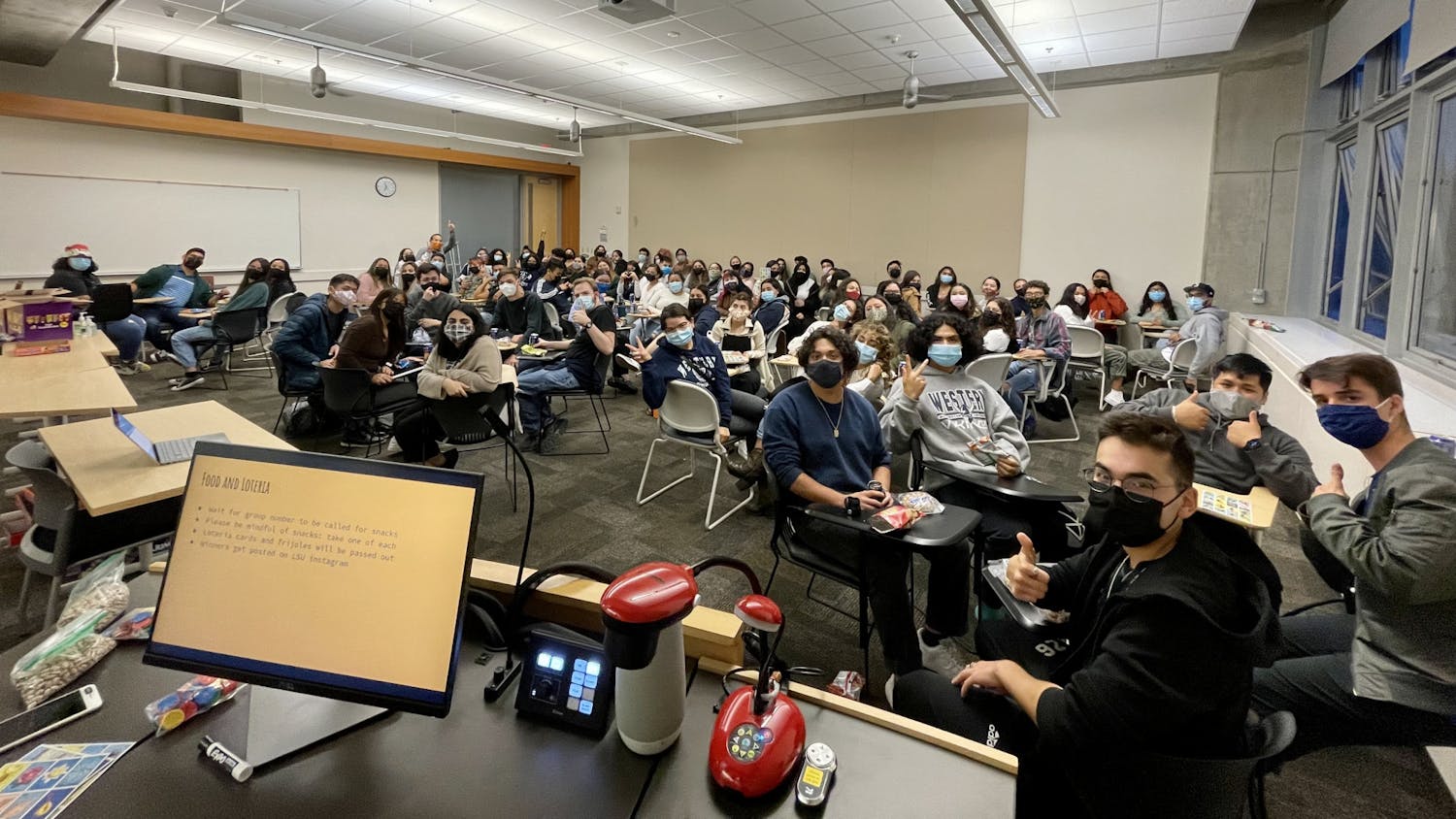KUGS 89.3 FM is the student radio station at Western Washington University, located in the Viking Union. They use a blend of analog and digital technology to play mostly underground local music.
Montana Siddle, the program director of the student radio station at Western, is hoping to make more students aware of the program.
“I want to bring down the barrier between the rest of campus and KUGS,” Siddle said. “I think a lot of people see our door and go ‘Wow, are we allowed to go in there?’ I want to make it more accessible to people.”
Many students are unaware that Western has a radio station, Siddle said.
“It’s such a shame that a lot of people don’t know,” Siddle said. “My roommate didn’t know until I told her. She was like ‘What? You do the radio? I didn't even know that was a thing.”
KUGS FM still uses analog music technology that allows for underground local music to be played. Often these are songs that can’t be found on popular music streaming platforms like Spotify, Siddle said.
KUGS FM also has radio shows that are completely original to the station. Many of these shows were difficult to produce as a result of COVID-19.
One show called ‘the Hawaiian show’ had to be taken off air due to a DJ named Na Mele O Hawai’i. He didn’t want to get vaccinated or tested, Siddle said.
“It was a big deal to a lot of people,” Siddle said. “I had a professor that knew I worked here ask me ‘what’s the deal? Where’s the Hawaiian show?”
There is an extremely passionate audience around KUGS FM. Siddle said, when the station was shut down from April 6 to April 11, there was a swarm of concern.

KUGS program director Montana Siddle stands in front of a row filled with Vinyl and CDs within the station. // Photo by Theron Danielson
“Yeah that really sucked, we got a lot of phone calls from the community,” Siddle said. “I got a shit ton of emails. Someone left a Facebook comment that said ‘Life isn’t the same without you.’”
It’s been a challenge within the station to maintain the energy they previously had before COVID-19 stopped many of their in-person activities, Siddle said.
“We need to get it back where it used to be without feeling really strained,” Siddle said. “You look at what you were doing before and it’s like, ‘How did I do that?’”
KUGS 89.3 is not alone in its struggle to recover from COVID-19. KCPR 91.3, the student radio station at California Polytechnic State University, has also had to face the challenges of the pandemic, despite its award-winning track record.
One of their DJs, Nate Jackson, spoke about the difficulties of operating during COVID-19.
“Over COVID we were really limited with the amount of DJs we had, maybe 5 or 6 before people came back to campus,” Jackson said.
KCPR FM takes advantage of modern technology without completely abandoning analog music.
“It’s a healthy mix,” Jackson said. “I mean everything is digital these days so you have to rely on a computer for a lot of your shows and certainly other aspects. But we have a whole stack of vinyls and CDs.”
KUGS FM is currently considering a switch to a system that would more resemble KCPR’s, with a move to include more digital technology.
“We’re on the edge,” Siddle said. “At least with our staff, there’s been a lot of talk of making that switch. I feel like at some point it’s going to happen but no matter what we still have a huge library that we’ve collected over the years.”
Regardless of what direction KUGS FM takes in the future, it will remain open to expanding its reach.
“A lot of it is just for people to have fun,” Siddle said. “I think my main goal is you can’t do radio any other time in your life unless you're a professional, so letting as many people as possible do this is the main goal.”
The culture at KUGS FM is welcoming, as Al Hartt, a DJ for KUGS FM, claims it’s helped her find community at Western.
“It’s been kind of hard for me to form a community here at Western because it’s only my first year,” Hartt said. “I lived in Alaska and left my close friend group back there. It’s still hard to find community, but I feel like with KUGS FM I’m slowly finding people to connect with.”x
Hart said that this sense of community is helped by how everyone at the station is needed.
“Everyone is equally important,” Hartt said. “The newsreader is just as important as the program director. Everyone is playing a part to do this thing, and it’s really inspiring in that way. It’s a lot of fun.”
Siddle also has found many friends through her time with the radio station.
“My co-workers have been my best friends,” Siddle said. “Our wall of CDs used to be in the studio, so whenever you’d go find your music you’d go in there and someone’s playing a show. You’re going to have to talk to them, y’know? You’re going to become friends.”
According to Siddle, you don’t have to be an expert on radio to join the station.
“You can just come in and sign up for training and learn how to do it,” they said. “I think that’s a really special opportunity.”
Theron Danielson (he/him) is a campus news reporter for The Front this quarter. He is in his second year, majoring in Journalism with a minor in Theatre. His writing interests include sports, radio, and student-led events. He enjoys musical theatre, watching anime, and yelling at the TV while watching sports.
You can reach him at therondanielson.thefront@gmail.com or on instagram @therondanielson.






